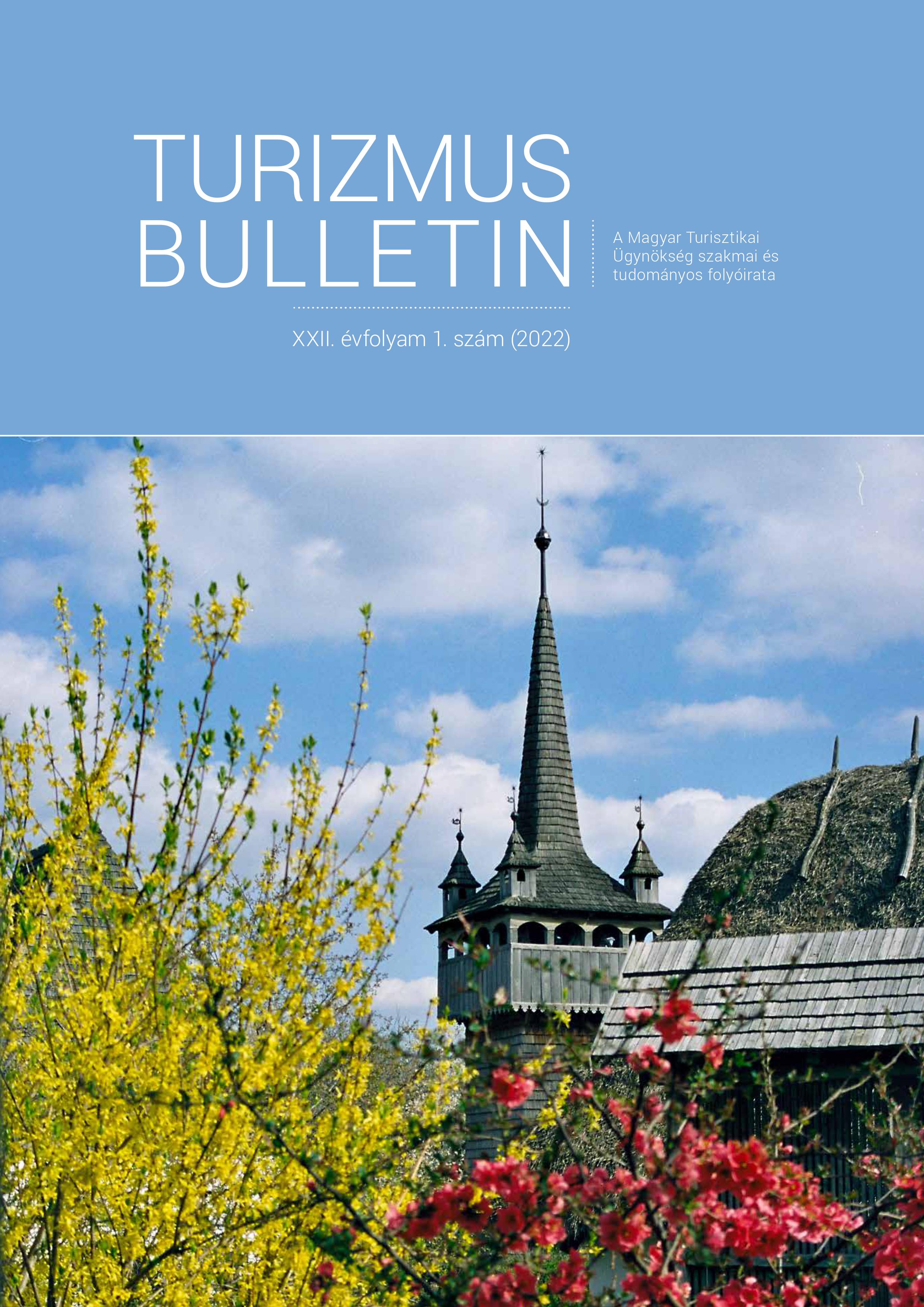E-WOM on online booking interfaces – a comparative analysis of online travel agencies’ guest rating systems
DOI:
https://doi.org/10.14267/TURBULL.2022v22n1.1Keywords:
e-tourism, OTA, guest satisfaction, e-WOM, guest reviewsAbstract
Recent profound, fundamental changes in the field of information technology have led to a similar change in consumer habits – a feature which also applies to tourism. In the e-world, consumers’ search for information and their communication habits have clearly changed; we are living in the era of a communicational paradigm shift. Today online travel agencies (OTAs) are not only the dominant channels for bookings and sales, but also optimal channels for information gathering and guidance in accommodation-related matters. Some of the information on OTA sites is objective, whilst much is subjective – the latter generated by consumer experiences and opinions. This subjective information concerning accommodation is directly provided by guest reviews on the OTA pages. This study aims to compare the guest evaluation systems of domestic and international OTA sites, in terms of authenticity, scale, the criteria applied, the possibilities of guest evaluations broken down by target groups. In addition, it presents OTA guest ratings of two accommodation establishments of the same category – located in the same destination – on a case-by-case basis, seeking an answer to the question of how consistent the results – as a whole and in terms of criteria – are for the consumer making the decision.
References
ÁSVÁNYI K. – KOMÁR Z. (2018): Érték-e zöldnek lenni? Zöld szállodák és vendégeik. Turisztikai és Vidékfejlesztési Tanulmányok. 3(1). pp. 20–33.
BAUER A. – BERÁCS J. – KENESEI ZS. (2007): Marketing alapismeretek. Aula Kiadó, Budapest.
BRONNER, F. – DE HOOG, R. (2011): Vacationers and eWOM: Who Posts, and Why, Where, and What? Journal of Travel Research. 50(1). pp. 15– 26. https://doi.org/10.1177/0047287509355324
CSAPÓ J. – NAGY Á. – TÖRŐCSIK M. (2019): Nemturizmus és életstílus összefüggések. Turisztikai és Vidékfejlesztési Tanulmányok. 4(2). pp. 5–18. DOI: 10.15170/TVT.2019.04.02.01
CSENDES I. – KIS G. (2017): Az online szálláspiac helyzete – fókuszban a magyar piac mérete és a hazai szállásadók online felkészültsége. In: Vilmányi M. – Kazár K. (szerk.): Menedzsment innovációk az üzleti és a nonbusiness szférákban. SZTE Gazdaságtudományi Kar, Szeged. pp. 517–530.
CSORDÁS T. – MARKOS-KUJBUS É. (2016): „Kellenek a rewiew-k; ez egy fogyasztói igény.” – Turisztikai szakemberek véleménye a Tripadvisor felületén megjelenő fogyasztói véleményekről. Marketing & Management. 3(4). pp. 1–12.
DARUKA E. – KARAKASNÉ MORVAY K. (2009): Az elvárások szerepe a szállodai vendég elégedettségben. Turizmus Bulletin. 13(2). pp. 48–57.
DOBBINS, G. – NIEDRICH, R. W. – SHARMA, S. (1999): A Framework for Monitoring Customer Satisfaction: An Empirical Illustration. Industrial Marketing Management. 28(3). pp. 231–243. https://doi.org/10.1016/S0019-8501(98)00044-3
EAST, R. – HAMMOND, K. – WRIGHT, M. (2007): The relative incidence of positive and negative word of mouth: A multicategory study. International Journal of Research in Marketing. 24(2). pp. 175–184. DOI: 10.1016/j.ijresmar.2006.12.004
FÉKI ZS. – MARKOS-KUJBUS É. (2019): Barát vagy ellenség? Negatív online fogyasztói értékelések szerepe az Airbnb oldalon. Turizmus Bulletin. 19(4). pp. 1–9.
GWINNER, K. P. – BITNER, M. J. – BROWN, S. W. (2005): Service Customization Through Employee Adaptiveness. Journal of Service Research. 8(2). pp. 131–148. https://doi.org/10.1177/1094670505279699
HAJMÁSY GY. (2018): Társadalmi felelősségvállalás a magyarországi szállodákban: különös tekintettel a környezetvédelemi aspektusra. Turisztikai és Vidékfejlesztési Tanulmányok. 3(3). pp. 4–27.
ISMAGILOVA, E. – DWIVEDI, Y. K. – SLADE, E. – WILLIAMS, M. D. (2017): Electronic Word of Mouth (eWOM) in the Marketing Context. A State of the Art Analysis and Future Directions. SpringerBriefs in Business. Springer, Cham. https://doi.org/10.1007/978-3-319-52459-7
KARAKASNÉ MORVAY K. (2014): A minőségfejlesztés és a vendégelégedettség összefüggései a hazai wellness szállodákban. Doktori (PhD) értekezés. Szent István Egyetem Gazdálkodás és Szervezéstudományok Doktori Iskola, Gödöllő.
KATAWETAWARAKS, C. – WANG, C. L. (2011): Online Shopper Behavior: Influences of Online Shopping Decision. Asian Journal of Business Research. 1(2). pp. 66–74. DOI: 10.14707/ ajbr.110012
KÁTAY Á. (2000): Szállodaismeret. In: Berta Á. – Vizi L. T. (szerk.): Idegenforgalmi Alapismeretek. Open Book, Székesfehérvár. pp. 69–113.
KÁTAY Á. (2011): Sikertényező-e a wellness szállodák telepítési helye? In: Michalkó G. – Rátz T. (szerk.): A turizmus dimenziói: humánum, ökonómikum, politikum. Kodolányi János Főiskola, Székesfehérvár. pp. 207–221.
KÁTAY Á. (2014): A szállodák minősítésének sajátosságai az Európai Unióban. Modern Geográfia. 9(3). pp. 37–54.
MARKOS-KUJBUS É. (2016): Az online szájreklám (electronic word-of-mouth) jellemzői a marketingkommunikáció szempontjából. Vezetéstudomány – Budapest Management Review. 47(6). pp. 52–63.
MICHALKÓ G. (2007): A turizmuselmélet alapjai. Kodolányi János Főiskola, Székesfehérvár.
NAGY Á. A. – KEMÉNY I. – SIMON J. – KISS V. (2015): Az online szájreklám alapjául szolgáló magatartás és az elégedettség kapcsolata. Marketing & Management. 2015(4). pp. 1–18.
NAGY B. – MARKOS-KUJBUS É. (2019): Áldás és/ vagy átok? – Az online fogyasztói vélemények szerepének vizsgálata a kis szálláshelyek esetében. In: Csordás T. – Varga Á. (szerk.): DMMD ADAPTER Tanulmányok a digitális marketing, média és design területéről. Budapesti Corvinus Egyetem, Budapest. pp. 35–50.
OLIVER, R. L. (1997): Satisfaction: A Behavioral Perspective on the Consumer. New York: Irwin/ McGraw-Hill.
SEITZ, G. (2000): Hotelmenedzsment. Springer Orvosi Kiadó Kft., Budapest.
SIDALI, K. L. – SCHULZE, H. – SPILLER, A. (2009): The Impact of Online Reviews on the Choice of Holiday Accommodations. In: Proceedings of the Information and Communication Technologies in Tourism. Amsterdam, Netherlands. pp. 87–98. DOI: 10.1007/978-3-211-93971-0_8
YEN C. L. – TANG C. H. (2015): Hotel attribute performance, eWOM motivations, and media choice. International Journal of Hospitality Management. 46. pp. 79–88. https://doi.org/10.1016/j.ijhm.2015.01.003
ZERÉNYI K. (2016): A Likert-skála adta lehetőségek és korlátok. Opus et Educatio. 3(4). pp. 470–478.

